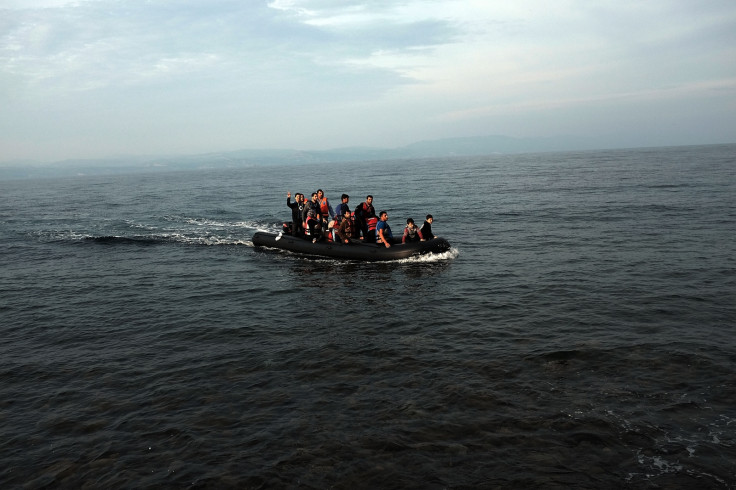Britain's coastline not routinely policed 'at all' as fears rise over people smugglers targeting entry

Britain is facing a significant test of its borders after a top union official said the country's 7,700 miles of coastline is not routinely policed "at all." It comes amid rising concern over the unknown number of border breaches as small boats and dinghies are used to smuggle migrants into the country.
Britain has three Border Force vessels to patrol thousands of miles of coastline and Immigration Services Union's general secretary, Lucy Moreton, said her "gut feeling" and anecdotal evidence indicate that the country is facing its biggest ever offensive from people smugglers.
"The easy answer is this is the worst we have ever seen it, and it is insofar as this is the worst that has ever been recorded. But we have no way of knowing because we didn't look for this until recently," Moreton told the Press Association (PA).
"My gut feeling is yes – this was an inevitable progression, once you saw the floods of people coming up from north Africa through Turkey into southern Europe and making their way up through Europe," added Moreton.
"That was always going to mean that whatever irregular route they used, whether it was climbing into containers, hanging on to the bottom of cars, clinging on to trains, walking through tunnels or getting into a small vessel – all of that was going to increase."
Former head of the Navy, Lord West described the situation as a "complete mess" and called on authorities to take decisive action after four reports highlighted Britain's lax border controls. In January, the government said: "The risk of people smuggling into the UK by general maritime is not currently assessed as being significant."
Speaking to the Daily Mail, West said: "We are taking a calculated risk with our own territorial waters."
"Already we have seen these illegal immigrants and I don't believe there aren't clever traffickers using the smaller ports to send them, and I'm sure terrorists are aware of the route too," he added. "We need to get a grip on this. We are taking a gamble that nothing will ever happen in our seas and that is a risky view to take given the dangerous world we are in."
The news comes as two British men appeared in court after a boat carrying 20 people - including 18 Albanian migrants - was rescued off the Kent coast on 29 May.
The passengers were taken to Dover, where they were questioned by immigration officials. The incident fuelled fears that rigid security at larger ports and a crackdown on roads and railway tracks are prompting people traffickers to smuggle migrants across the Channel in small boats.
"Wherever we tighten security in one place there will be another vulnerability," said Moreton. "We tightened the security massively to stop people climbing into lorries and under cars, all those resources were thrown into the Channel ports, into Calais, into Dunkirk.
"That made those crossings become more difficult and it pushed that traffic elsewhere. They will go to smaller French ports and make container type crossings, or they will go and buy inflatables and try to cross the Channel."
Labour MP and Chairman of the Home Affairs Select Committee said: "The Home Office has repeatedly been warned about the vulnerabilities of our small ports and airports yet it is still a problem. This is staggering complacency."
From 31 May, Border Force officers will be handed new powers to stop, board, divert and detain vessels and arrest anyone suspected of breaking the law, in a bid to crack down on illegal immigration and smuggling. The Public and Commercial Services Union, which represents border staff, criticised the government for ignoring its warnings and called for talks to address the issue of border policing.
"We've said for years that there aren't enough staff at the borders and we've been ignored and vilified by Government ministers and senior officials," a spokesman for the body said. "Instead of pretending everything's fine, moving staff to cover passport gates and leaving gaps elsewhere, the border agency needs to get round the table with us to discuss rationally what resources they need and where."
© Copyright IBTimes 2025. All rights reserved.






















